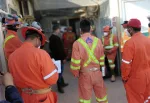EPC Groupe has led the way in commercial explosives manufacturing for 130 years. We delve into the industrial projects igniting the Canadian mining industry with Ferdinand Bodénan, Senior Vice President of EPC Canada.
LEADING THE WAY IN COMMERCIAL EXPLOSIVES MANUFACTURING
A relatively confidential industry unknown to the public, modern commercial explosives have become extremely stable and safe to handle.
One of the world’s leading manufacturers is EPC Groupe (EPC), founded in 1893 and a key actor in developing new explosives technologies over its 130-year history, always placing safety as the first priority.
Explosives manufacturing remains the main activity of EPC (60 percent), complemented by drilling and blasting, which is directly linked to the use of explosives, and demolition, where the company is a leading player in the French market.
Today, EPC is a public company listed on the Euronext Paris stock exchange, generating €517 million in sales in 2022 and employing 2,600 people internationally across its 44 subsidiaries, including the Senior Vice President of EPC Canada, Ferdinand Bodénan.
Having originally joined EPC in January 2010 as Deputy Finance Manager for its Senegalese drilling and blasting subsidiary, Mr. Bodénan eventually had the chance to work at the group’s head office in Paris as International Financial Analyst.
“This position was very exciting, as it gave me the opportunity to see all of EPC’s activities,” he recalls.
“In 2015, I was then appointed as CFO of EPC Sverige (Sweden) and EPC Norge (Norway), which gave us the opportunity to work differently in each territory.”
MULTI-PROVINCE OPERATION
Following two years in Scandinavia, Mr. Bodénan assumed his current role at EPC Canada in early 2017 after the group acquired a local independent explosives manufacturer in the north of Ontario.
With a tradition of international development, the acquisition was a great opportunity for both EPC and Mr. Bodénan to develop the group in a country where mining is a very important industry.
“Canada is one of the largest mining countries in the world, and positions itself as a competitive, sustainable, and responsible field for mining,” notes Mr. Bodénan, who also acts as Area CFO as part of EPC’s development in the Americas.
“The Canadian government has developed the Canadian Minerals and Metals Plan to promote the mining of strategic minerals and to support the growth of new technologies that address climate change challenges. The market is going to grow and evolve, and new, greener technologies are needed, so it is an exciting time.”
EPC Canada has subsequently expanded from being a local business to a multi-province operation, reaching more clients as a result.
Thanks to its strong customer service, the subsidiary was rapidly able to capture a share of the Quebec quarrying market.
“Today, we are present in both the mining and quarrying markets in Quebec and Ontario,” reveals Mr. Bodénan.
“We have also been growing our team and are excited to onboard new talents in the coming months and years.”
As well as being fast-growing, EPC is an efficient and agile organization that acts promptly when there is a decision to be made.
The group also keeps key equipment in its inventory to meet client requests at short notice for projects around the world, giving it a strong advantage when timeframes are tight.
“EPC has organized its resources in a simple and effective way. Our industrial and innovation division, EPC 2i, is fully dedicated to developing and delivering solutions to EPC’s subsidiaries,” Mr. Bodénan tells us.
“We have readily available designs for any type of equipment related to explosives manufacturing or usage. All our technologies include hazard and operability (HAZOP) and hazard identification (HAZID) tools.”
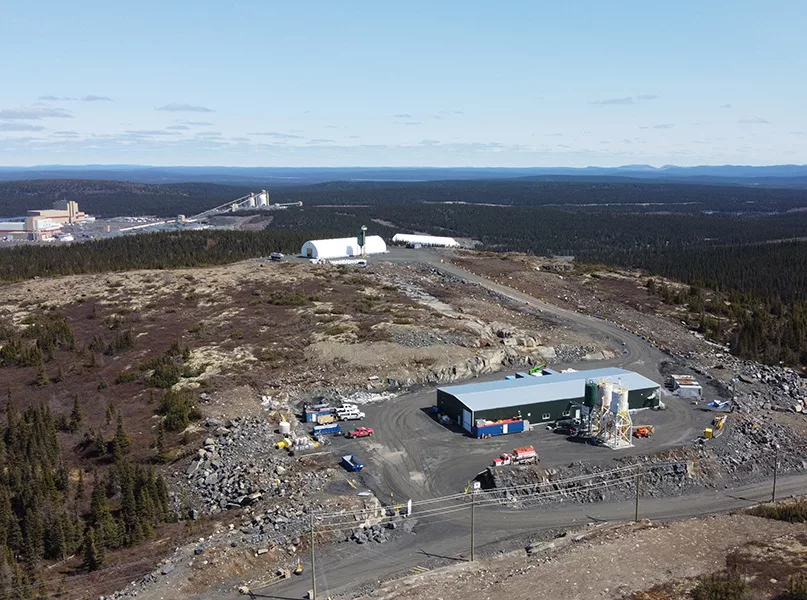
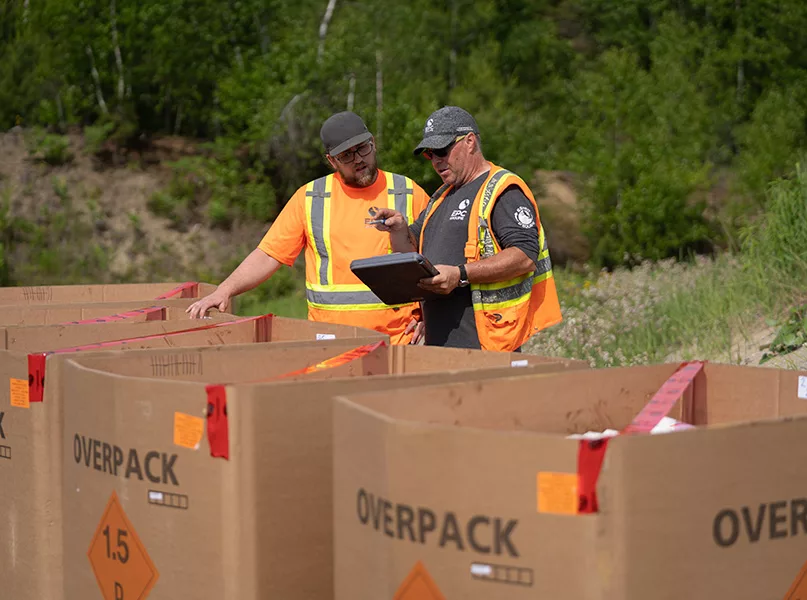
EMULSION PRODUCTION
EPC Canada finalized two industrial projects in 2022, the first of which consisted of upgrading the company’s Kirkland Lake plant in Ontario.
The extensive upgrade incorporated automation into the plant, with all production lines now being fully monitored by a programmable logic controller (PLC).
“This investment has increased our production capacity in terms of volume and the number of formulations we can make, as well as quality controls,” informs Mr. Bodénan.
The second was the construction of a brand-new emulsion plant on the Bloom Lake mine site in Fermont, Quebec, producing 30,000 metric tons per annum (mtpa) of a single salt 70/30 gassed emulsion blend.
Bloom Lake is supplied by EPC Canada and owned and operated by its client, Champion Iron, who possesses a portfolio of exploration and development projects in the Labrador Trough through its wholly-owned subsidiary, Quebec Iron Ore.
“Canada is one of the largest mining countries in the world, and positions itself as a competitive, sustainable, and responsible field for mining”
Ferdinand Bodénan, Senior Vice President, EPC Canada
EPC Canada was first introduced to Quebec Iron Ore in 2018, which was quickly followed by a site visit to learn more about its operations.
“We believed that we could do things a little differently by working closely with the mine team,” says Mr. Bodénan.
To minimize the risk of changing supplier, EPC Canada offered to trial the production of emulsion on-site in real conditions.
The trial offer incorporated the set-up of a totally new supply chain for the project before Quebec Iron Ore’s decision to go ahead and try EPC Canada’s solutions was formalized at the end of April 2019, marking the beginning of the project.
“We mobilized an emulsion modular plant, a mobile explosives manufacturing unit, raw materials, and a complete team of operators to produce emulsion on site in real conditions,” Mr. Bodénan shares.
Fully up and running in less than four months, the first batch of emulsion was produced at the plant before the end of August 2019.
“I don’t believe many companies, if any, would be able to achieve that, especially in a remote location like Fermont. This is probably one of the most exciting achievements I have worked on with EPC.”
A year later, EPC Canada was contracted to replace the emulsion plant mobilized for the trial with a larger permanent installation that was built in 2022.
“We are proud of our team operating on the mine. It is remote, and the conditions are extreme, but their passion and professionalism deliver on our promise every day of the year,” praises Mr. Bodénan.
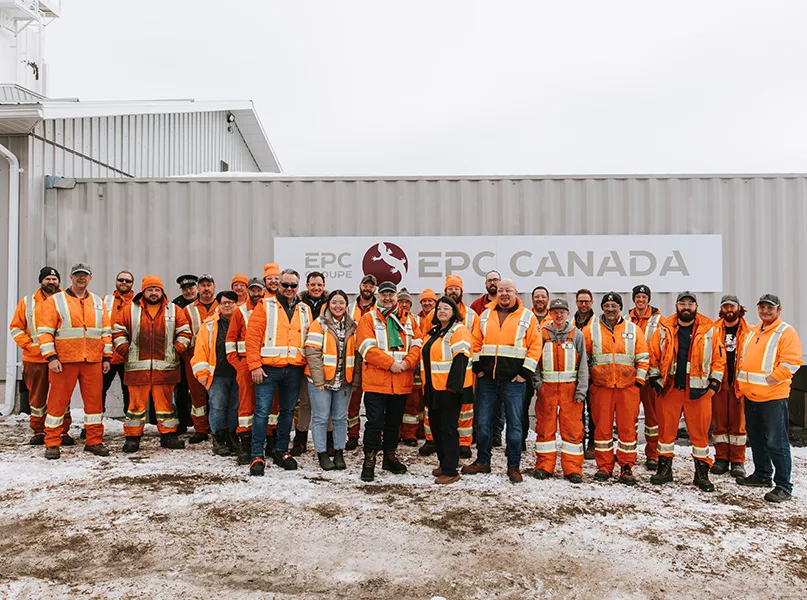
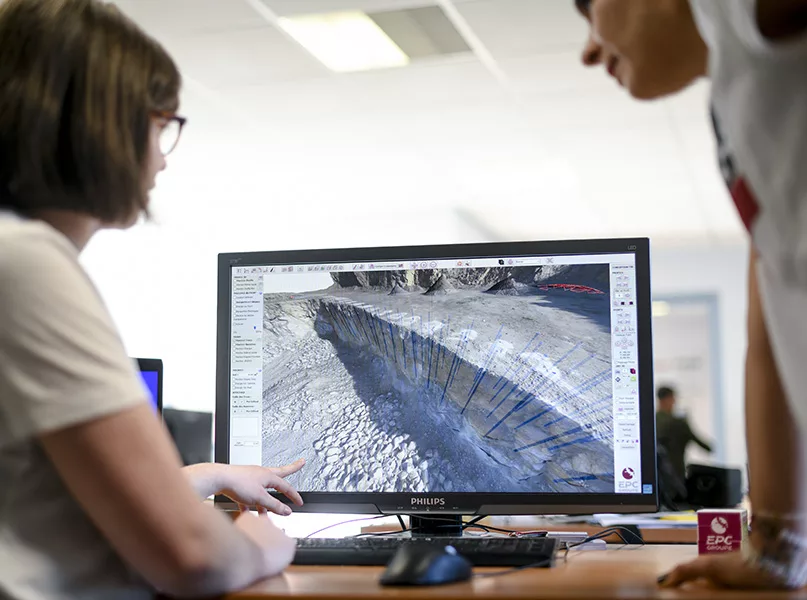
GREEN STEEL
Bloom Lake is an open pit operation with two concentrators that primarily source energy from renewable hydroelectric power, making it a key player in green steel production.
The two concentrators at Bloom Lake have a combined production capacity of 15 million Mtpa and produce a low contaminant, high-grade 66.2 percent Fe iron ore concentrate, with a proven ability to produce a 67.5 percent Fe direct reduction quality concentrate.
The high-grade iron ore concentrate produced at Bloom Lake will contribute to reducing the steel industry’s greenhouse gas (GHG) emissions by a level equivalent to taking 420,000 cars off the road each year.
Therefore, Champion Iron’s production is already trading at prices higher than the Platts IODEX 62 percent Fe iron ore benchmark, driven by the understandably growing interest in high-grade iron ore concentrate.
“This trend is expected to continue as the steel industry shifts to lower-carbon production methods,” Mr. Bodénan observes.
In January 2023, Champion Iron also announced the positive findings of a feasibility study that evaluated upgrading half of Bloom Lake’s capacity to a direct reduction quality pellet feed iron ore concentrate and approved an initial budget to advance the project.
EPC Canada has kickstarted some initiatives to reduce GHG emissions and lower its impact on the environment, understanding that climate change is affecting everyone, even more so in developing countries.
Acting green is not something new for EPC as a group, as it has acted in favor of the environment on its sites for decades.
“I believe corporations have a role to play to change the way the economic world is producing,” Mr. Bodénan affirms.
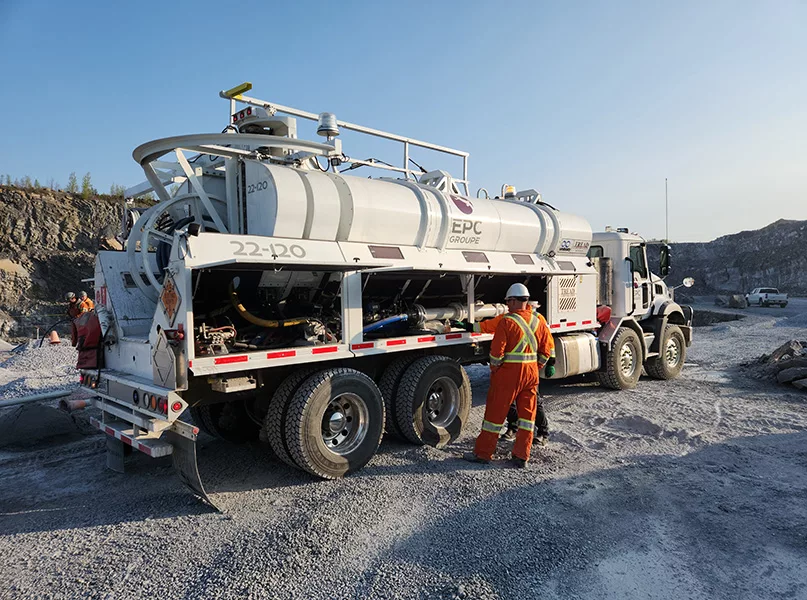
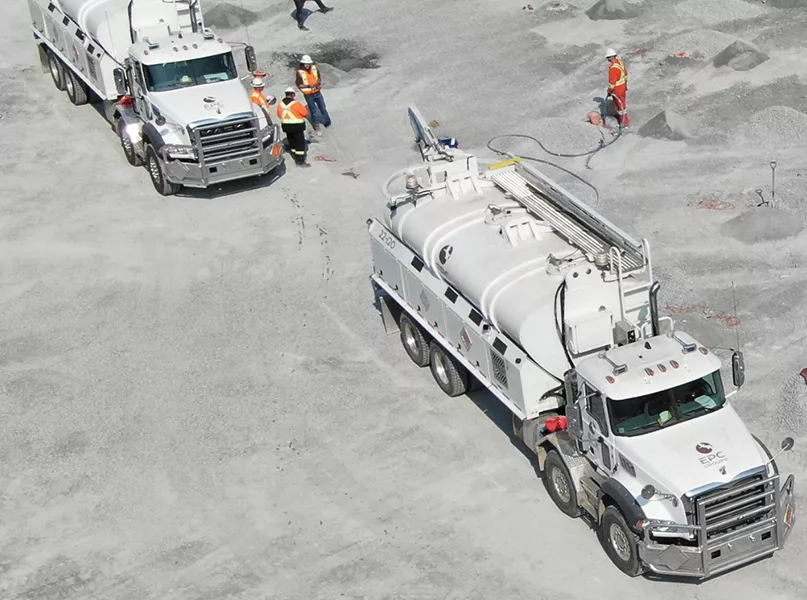
DIGITAL TRANSITION
Over recent years, EPC Canada has also been integrating new information management technologies, such as a new enterprise resource planning (ERP) system and a dematerialized cloud-based platform for account payables, automating the company’s various administrative processes.
EPC Canada has additionally transitioned to a fully digital human resources (HR) platform, as well as a secure cloud-based solution for data storage and sharing, ensuring smooth and effective access to critical data when needed by the appropriate stakeholders.
“We are also using Microsoft Power BI intensively to build efficient dashboards and reports for each area of the business.”
Looking ahead, despite bidding for some mining and quarrying project tenders, the priority for EPC right now is not on growing explosives volumes.
Rather, the goal is to build strong partnerships with clients and develop innovative solutions to improve the company’s operational performance.
Canada is at the heart of EPC’s development strategy, and EPC Canada’s focus is equally on continuing to structure and stabilize the business.
“We are focusing on growing healthily, attracting talent to the organization, and bringing innovation to our clients,” concludes Mr. Bodénan.
“EPC is an expert in commercial explosives and we like to focus on our core business to bring value to our customers”
Ferdinand Bodénan, Senior Vice President, EPC Canada






